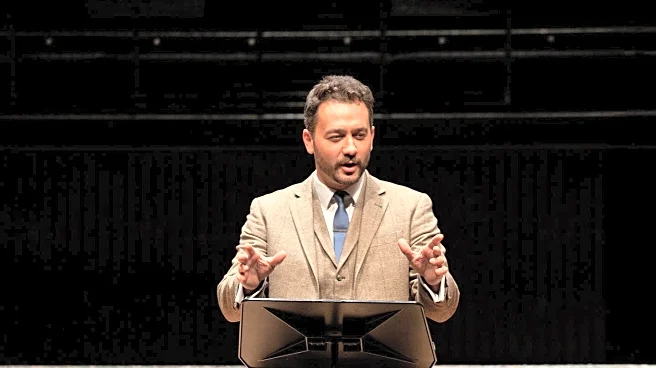What's Happening?
U.S. Treasury Secretary Scott Bessent has called for a thorough examination of the Federal Reserve, including its interest rate setting powers. This initiative is part of the Trump administration's efforts to exert more control over the central bank. Bessent emphasized the need for an independent, nonpartisan review of the entire institution, covering aspects such as monetary policy, regulation, communications, staffing, and research. The call for review comes amid concerns over the Fed's autonomy and the potential politicization of monetary policy. Some experts warn that a loss of independence could lead to inflationary spirals and financial instability.
Why It's Important?
The review of the Federal Reserve could have significant implications for U.S. monetary policy and economic stability. The Fed's independence is considered crucial for maintaining effective monetary policy free from short-term political pressures. If the Fed's autonomy is compromised, it could lead to increased inflation and financial instability, affecting industries and economic stakeholders across the country. The move reflects broader concerns about the politicization of economic institutions and the potential impact on public policy and economic governance.
What's Next?
The proposed review could lead to changes in how the Federal Reserve operates, potentially altering its role in supervising banks and its approach to monetary policy. Stakeholders, including political leaders, economists, and financial institutions, are likely to react to these developments, with debates expected over the balance between political oversight and economic independence.









